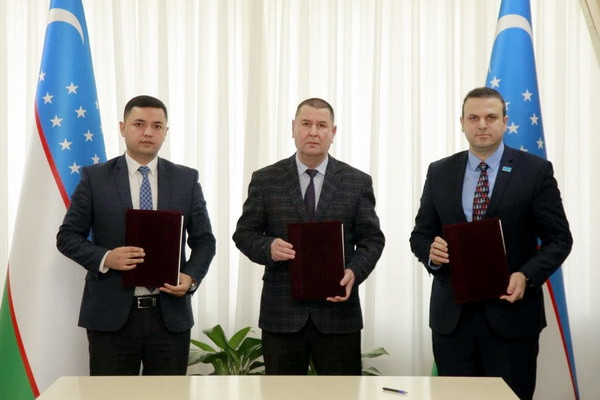
A signing ceremony of the Memorandum of the Learning Passport web platform takes place
Tashkent, Uzbekistan (UzDaily.com) -- A signing ceremony of a memorandum between the Ministry of Preschool Education and the UNICEF Representative Office in Uzbekistan took place. The memorandum was signed by First Deputy Minister of Preschool Education (MOPE) Kahramon Olimov, Head of UNICEF Representative Office in Uzbekistan Munir Mammadzade and Director of the Innovation Center for Information and Pedagogical Technologies Oyatillo Rakhmatillaev.
At the heart of the memo is the Learning Passport, a web platform that provides continuous access to quality education. It is a highly flexible and adaptable program that allows different countries to easily and quickly adapt it to their national contexts as a complement to existing digital learning platforms.
The Learning Passport, created in partnership between UNICEF, Microsoft, Cambridge and with support from the Boston Consulting Group, has been designed with a unique set of online and offline features and capabilities.
The platform serves local contextualized content as well as global complementary resources to support educators, parents, and preschoolers. The proposed digital preschool platform aims to enhance ongoing engagement with families and parents on homeschooling, and to improve collaboration between preschool educators and other staff to share ideas, best practices and activities that can be implemented in preschool.
Currently, the Innovation Center, together with MOPE specialists, is collecting a library of open educational resources. UNICEF was offered a number of international examples and resources on early childhood education, and was encouraged to use the resource base of leading private companies to offer a variety of additional content for localization and use of the platform by implementing countries.
The main goals of digital learning platforms for preschool institutions at the national level are:
1) Provide support to parents with practical resources and materials to support early learning at home and strengthen parent-child interaction.
2) Support early childhood educators with practical resources and materials that they can use in their classrooms and collaborative spaces to improve early learning.
3) Support a national community of practitioners between parents, teachers and children, sharing the principles of early learning and development.